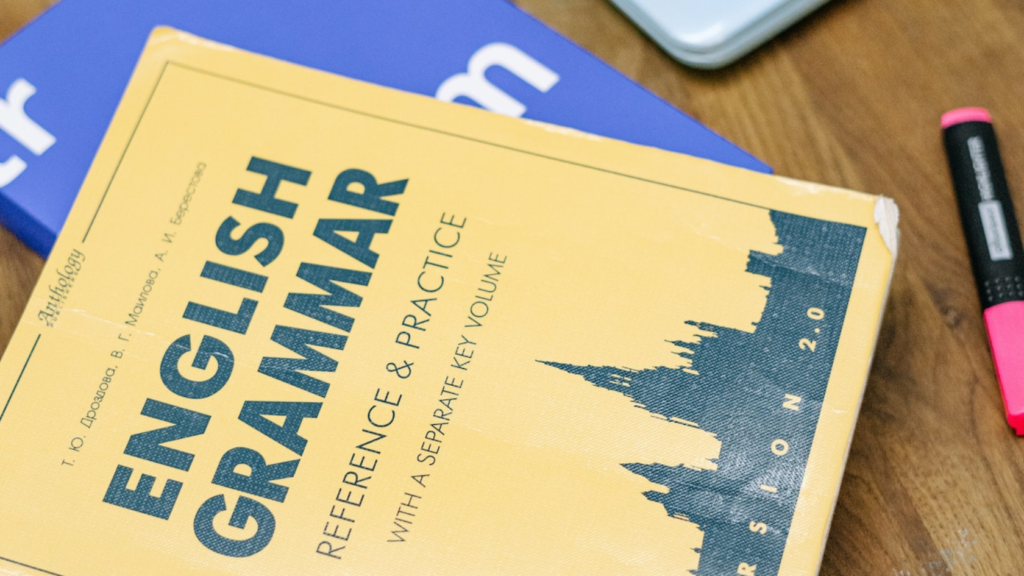
5 Grammar Mistakes You Can Make Without Worrying

As a writer, you work so hard to avoid grammar mistakes and make sure the books you write are as polished as possible. You go through multiple rounds of edits until you’re finally ready for proofreading.
Oh, the dreaded proofreading.
Just when you think your manuscript is nearly finished, you run it through a grammar checker, only for your eyes to be assaulted by a barrage of colorful underlines.
But not every grammar suggestion is right for your story. In fact, in fiction, and even narrative nonfiction, grammar that is too perfect can sound awkward, dry, and unnatural.
How do you know which grammar suggestions to implement and which to break?
Here are five grammar mistakes that are okay to make in your novel.
Sentence fragments
You probably learned that a sentence must have a subject and a verb. Without both, the sentence is a fragment because it doesn’t express a complete thought.
Well, this rule flies right out the window when you’re writing fiction. Why? No one speaks in complete sentences all the time.
No matter the voice of your narrator, the narration in your story should sound natural. Even the most academic or historical narrator voices should still sound like someone is speaking. Everyone uses sentence fragments at some point.
Sentence fragments are also useful for emphasis. They can express a complete thought as long as the previous sentences provide enough information. In these cases, a well-placed pithy fragment can drive home an important point, like a character revelation or a line of foreshadowing.
Sentence fragments should be used sparingly and deliberately. When you’re proofreading your writing and come across a fragment, ask yourself if a complete sentence will work without losing the voice or the feel that the fragment provides. If so, complete the sentence. If not, you can leave it as a fragment.

Colloquialisms and slang
You probably had an English teacher in your life tell you that it’s never acceptable to use “ain’t.” In many situations, colloquial expressions and slang aren’t appropriate — for example, an English essay or technical work report.
Creative writing is a different story. Rather than being grammar mistakes, colloquialisms and slang can serve important purposes in your novel.
As we spoke about with sentence fragments, people don’t always speak with perfect grammar. They say words like “ain’t” or drop the “g” on words that end with -ing. They use phrases unique to their cultures and communities.
Using colloquial language can be an important component of characterization. Imagine if Hagrid from Harry Potter spoke like Snape. It would lose crucial aspects of Hagrid’s character: someone without a complete education who represents the exact opposite of pure-blood culture.
Writing with variations in pronunciation, along with colloquial phrases or slang, can demonstrate a character’s origin, level of education, and more.
This is especially true for dialogue. However, even your narrator’s voice—the particular way that your narrator speaks—can use these aspects. But do keep in mind that too many slang words or nonstandard pronunciations can be hard to read.
Use slang and colloquialism more conservatively in narration than in dialogue. For example, if your narrating character is Scottish, too much phonetic spelling of a brogue accent and colloquial words will be hard to read for anyone who isn’t Scottish. Pepper a few words into the narration and leave the thick accents for dialogue.
Another thing you should limit is colloquial phrases that have become cliché. If it’s an overused phrase, there’s probably a fresh way to say the same thing. ProWritingAid’s Cliché Report will point out uninspired, worn-out phrases so you can come up with a more poignant way to say what you want.
Starting sentences with conjunctions
This next grammar rule was made to be broken. In fact, it’s not just breakable in fiction. The idea that you can’t start a sentence with “and” or “but” is no longer a widely accepted grammar rule.
“And” and “but” sound more natural than transition words like “however” or “consequently.” They can sound more informal, depending on the context, so they should only start sentences sparingly in formal situations.
But in your novel? Don’t be afraid to start a sentence with a conjunction. Not only do they sound more natural (are you seeing a trend in our rule-breaking?), they can even add emphasis and make a sentence more poignant. Short sentences do well with conjunctions at the head.

Ending sentences with prepositions
Here’s another grammar rule that isn’t really a rule anymore. You can absolutely end a sentence with a preposition.
Often, when you try to rearrange a sentence so that it doesn’t end in a preposition (e.g. to or with), the entire sentence sounds unnatural.
Here’s an example.
Preposition ending: Who were you with?
No preposition ending: With whom were you?
No one speaks like that. Rather than jump through syntax hoops, just end your sentences with prepositions when appropriate. You want your prose to flow smoothly. If you rewrite sentences like the example above, you will pull your readers out of the story.
Passive voice
Passive voice is when the recipient or object of an action is placed before the action. For example, if you say, “The meal was made by Jane,” you are using the passive voice. The active voice would say, “Jane made the meal.”
You might have learned to never use the passive voice, but sometimes it is a better option. The passive voice can serve several purposes, in fiction especially.
Sometimes, there is no actor who does the action. They might not exist or be known. Let’s take the sentence, “She was blessed.” Who blessed her? That might not be relevant to the story.
The passive voice also shifts the focus of a sentence. Let’s say your character was blessed by the gods, but the gods aren’t the important part of that sentence. Your character is. If you say, “The gods blessed her,” you have now shifted the focus to “the gods.” Passive voice works better: “She was blessed by the gods.”
In most cases, you should still use the active voice. But when it negatively changes the focus, emphasis, or meaning of your sentence, the passive voice is okay.
The golden rule of breaking rules: everything in moderation
You can get away with occasionally breaking almost every grammar rule in fiction, particularly in dialogue. These five rules are some of the grammar mistakes that are easily forgiven if you use them more than once or twice.
However, every rule should be broken in moderation. Too many of the same grammatical patterns will make your writing sound trite and boring. Consider each rule that you’re breaking when you proofread.
Be deliberate. If you can say the same thing with correct grammar without affecting mood, tone, characterization, or voice, then go for the “right” way. But overall, remember that even with these grammar mistakes, your manuscript can still be a masterpiece.
































